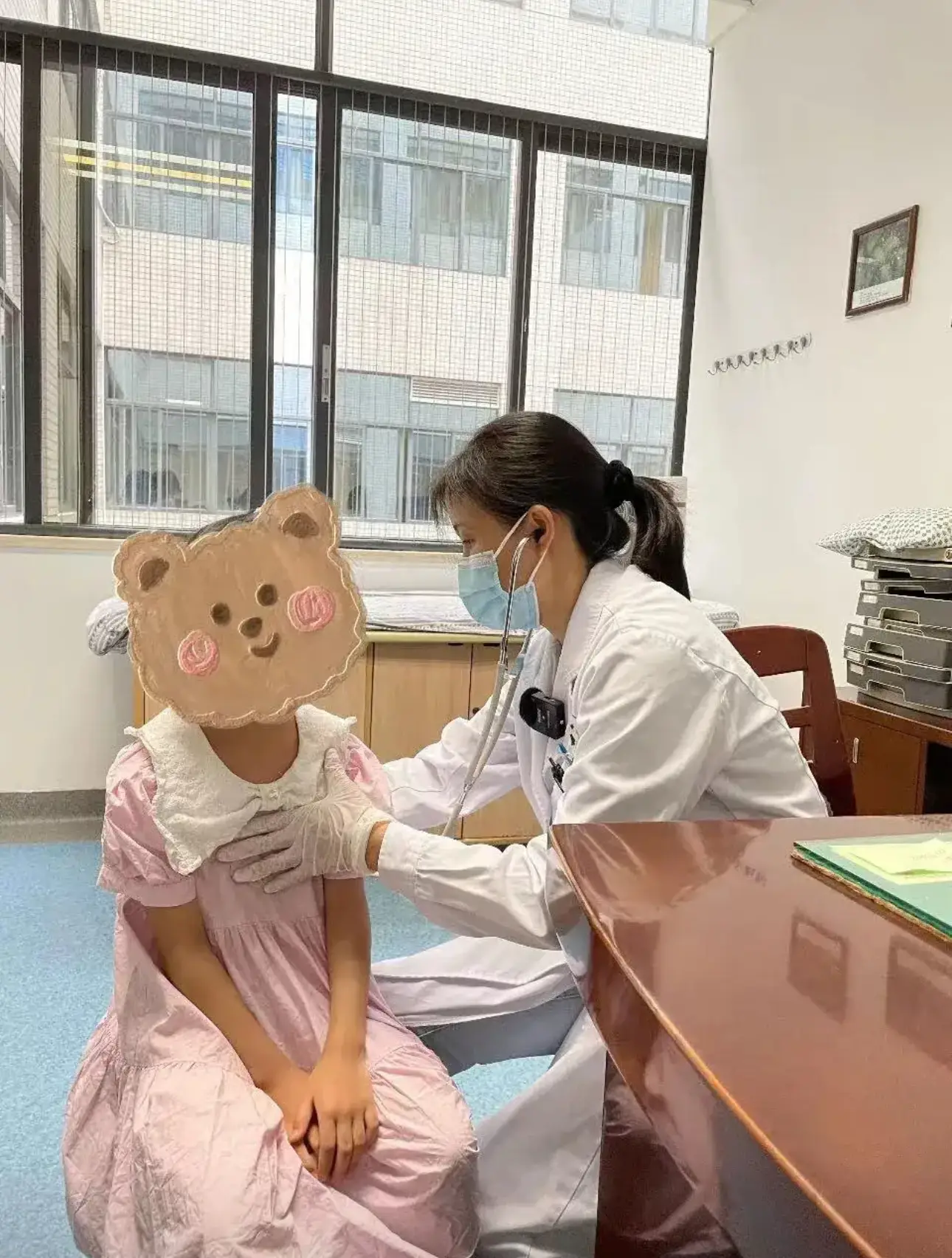Ms. Vu shared that she has a modest height of 145 cm (4’9″). Due to her short stature, she felt insecure about her height from a young age and faced challenges in finding employment as an adult.
Empathizing with the struggles of being height-challenged, Ms. Vu paid extra attention to providing nutritious meals for her daughter. However, her daughter consistently fell short of her classmates in terms of height.
After consulting a doctor, Ms. Vu was assured that her child was only slightly shorter than average and was advised to encourage her daughter to skip rope regularly, as it could promote height development.

Following the doctor’s advice, Ms. Vu instructed her eight-year-old daughter to skip rope at least twice a day, with a minimum of 300 skips each session.
After some time, her daughter’s height did show improvement, and she was among the tallest students in her class, which delighted Ms. Vu.
However, when her daughter turned nine, Ms. Vu noticed that her menstrual cycle had started, and her height gain seemed to stagnate.
Concerned, Ms. Vu took her daughter, who was now only 149 cm tall (4’10”), significantly shorter than the average height of 165 cm for girls her age, to the hospital for another check-up.
Unfortunately, the doctor shared that her daughter had already started menstruating, and upon examination, her bone age suggested that her growth potential was mostly concluded, as bone age closely correlates with the cessation of height increase.

Ms. Vu was shocked and confused, as her daughter’s height had improved significantly after skipping rope regularly, and now it seemed that progress had halted.
The doctor explained that children typically experience height development starting at age nine and usually have their first menstrual cycle between ages eleven and twelve. Ms. Vu’s daughter was two to three years ahead of the typical timeline.
While most children gain about five centimeters in height annually, Ms. Vu’s daughter had missed out on that opportunity during those three years. As a result, she was effectively three years biologically older than her peers, which explained her shorter stature.
The doctor inquired about her daughter’s diet, and Ms. Vu assured him that she prepared all her meals at home with careful attention to nutrition, without excessive supplementation.
Then, the doctor recalled something he had seen online and asked Ms. Vu, “Did your daughter not wash her hands before eating after skipping rope?”
Ms. Vu confirmed that this was the case, explaining that her daughter would often complain of hunger after skipping rope, so she would give her conveniently prepared meals or snacks without considering hand hygiene.

The doctor elaborated that he had seen an investigative news report revealing excessive amounts of plasticizers in some jump ropes, with levels exceeding the standard by up to 200 times. He suspected that these plasticizers could have remained on her daughter’s hands after skipping rope and, due to the lack of handwashing, were inadvertently ingested.
Ms. Vu immediately regretted her oversight, realizing that the cheap jump rope she had purchased for her daughter from a street market might have contributed to this issue.
Early puberty in children, especially girls, is becoming an increasingly common concern and can be influenced by various factors, including exposure to harmful chemicals. These chemicals may be present in everyday foods or objects that children come into contact with, as illustrated in Ms. Vu’s daughter’s case.
Therefore, to minimize children’s passive exposure to these harmful chemicals, parents should encourage healthy eating habits and lifestyles, with a particular emphasis on handwashing before meals.
– Shield children from external sources of estrogen and testosterone, such as adult medications or supplements containing these hormones.
– Encourage your child to maintain a healthy weight and follow a scientifically backed diet from the National Institute of Nutrition. Engage in daily physical activities like sports or exercises for about 30 minutes. Opt for organic, pesticide-free, and growth-hormone-free foods, and refrain from taking unprescribed supplements.
– Minimize the use of lighting during sleep: Melatonin secretion from the pituitary gland is inhibited, reducing the release of gonadotropin-releasing hormone and preventing early puberty.





































